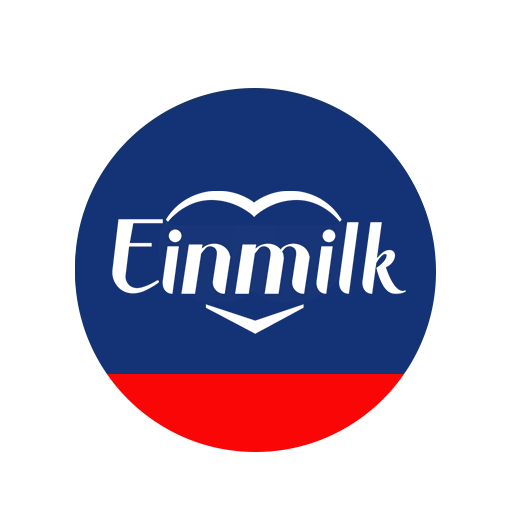Eating well and eating right offers your children with the right nutrition to meet their growing needs.
“Let food be thy medicine, and medicine be thy food.”
– -Hippocrates
According to the World Health Organization (WHO) and the Health Promotion Board of Singapore (HPB), “For optimal growth, development and health… recommend exclusive breastfeeding (with no other food or drink) for the first 6 months (i.e. 180 days) of a baby’s life. Mothers are encouraged to continue breastfeeding their children until they are 12 months old and thereafter as long as mutually desired, together with the timely introduction of solid food from 6 months of age.”
Breastmilk is the most natural and best milk source for babies, and breastfeeding is encouraged by medical experts. When it is not practiced due to medical conditions or other concerns, formula milk is introduced, and toddlers may continue to consume breastmilk, formula milk or start on fresh milk to complement their diet.

What are some of the essential nutrients toddlers need?
Children from one to three years old enter toddlerhood, and this is also the phase when they undergo development in all areas such as cognitive, emotional, motor skills to name a few. Nutrients from the food they eat provide them with the essential nourishment to promote and support healthy development as their organs mature alongside their physical growth.
Some of the essential nutrients that toddlers need are:
Carbohydrates
- Carbohydrates provide a source of energy to toddlers, and these active bubs need plenty of energy to fuel their daily activities.
- Food sources: Carbohydrates can be obtained through food such as grains, rice, noodles, bread and cereals.
Proteins
- Proteins are necessary to help babies build their bodies and supports their growth. Dietary proteins are digested into amino acids, which help maintain the development of organs, muscles, bones, teeth, hair and skin.
- Food sources: Offer high protein foods such as vegetables, meats, beans, eggs, dairy products such as cheese and yogurt.
Lipids
- Besides supplying a major source of energy, lipids help reduce body heat loss and act as padding to protect body organs. Lipids also aid in the absorption of Vitamin A, D, E and K, which are needed to build baby’s immunity, vision and skin health. Essential fatty acids (e.g. ARA and DHA) associated with visual and neural development while further studies are warranted (i.e. sample size, duration, dosage)*.
- Food sources: Fatty fish such as salmon and cod offer healthy fats such as DHA and Omega-3 along with proteins. Avocadoes are fruit sources that provide good fats to support healthy development, and are known as superfoods as they pack wholesome nutrients
Calcium
- Needed to build strong bones and teeth, calcium absorption is enhanced with the presence of Vitamin D. Experts suggest that an adequate intake of calcium during childhood may help reduce the risk of osteoporosis during the later years.
- Food sources: Milk is a common source for calcium for children. Besides dairy options such as cheese and yogurt, other non-dairy food with high calcium includes tofu, soy beans and soy milk, oranges, almonds, beef, broccoli, peas and ikan bilis.

To offer variety to your toddler, try cooking food with different methods, herbs and spices so he obtains a range of nutrients.
Choline
- Required for the normal functioning of cells, choline is linked to memory and learning functions of a child too.
- Food sources: Animal and plant-based sources such as beef, eggs, salmon and cauliflower.
Iron
- Iron is necessary for the formation of haemoglobin, which help to carry oxygen around to the organ and muscles through red blood cells. Research advise that iron deficiency leads to poor weight gain, irritability, pale skin and poor appetite. Toddlers with low iron levels or are anaemic, iron-rich food should be added to their diet. For ideal absorption, consume with food rich in Vitamin C.
- Food sources: Heme sources (meat) such as beef, pork, lamb, liver, veal, chicken; non-heme sources (plants) such as spinach, broccoli, legumes, beans, eggs, lentils, and iron-fortified food such as cereal, whole grain bread and enriched pasta.
Vitamin A
- Vitamin A is needed to support toddler’s visual development, immune system and promotes healthy skin and hair.
- Food sources: Eggs, milk, and dark coloured or orange coloured fruit and vegetables like carrots, spinach, kale, pumpkins, sweet potatoes, apricots, papaya and peaches.
Vitamin E
- A powerful antioxidant, Vitamin E helps to protect the body against germs, and supports healthy development in toddlers.
- Food sources: Nuts such as peanuts, peanut butter, almonds, sunflower seeds, spinach, wheatgerm, broccoli and kiwi.

Vitamin C are iron-rich food are friends – when taken together, Vitamin C helps to improve the absorption of iron by the body.
Vitamin C
- Besides promoting the absorption of iron and calcium, Vitamin C is needed for wound healing and resist infection, and helps maintain bone and teeth health in toddlers*.
- Food sources: Citrus fruit such as oranges and lemons, guava, kiwi, strawberries, honeydew
Depending on individual babies, nutritional needs may vary. Experts advise that a healthy balanced diet would suffice in providing the essential nutrients needed for toddlers. While supplements should not substitute a diet, toddlers on special diets or have medical concerns may consider doctor-prescribed supplements.
Consult a nutritionist of health expert when in doubt. After all, eating right is key to raising world-ready citizens for our future too.

Comments (2)
What’s up,I log on to your blog named “Einmilk | Essential Nutrients for Toddlers” regularly.Your story-telling style is witty, keep it up! And you can look our website about اغاني.
[…] you can see, pumpkin can be used in various ways and cooking methods as a source of essential nutrients that your growing toddler requires. Low in fat and calories and high on nutrients, this is one ingredient you should be using more of […]